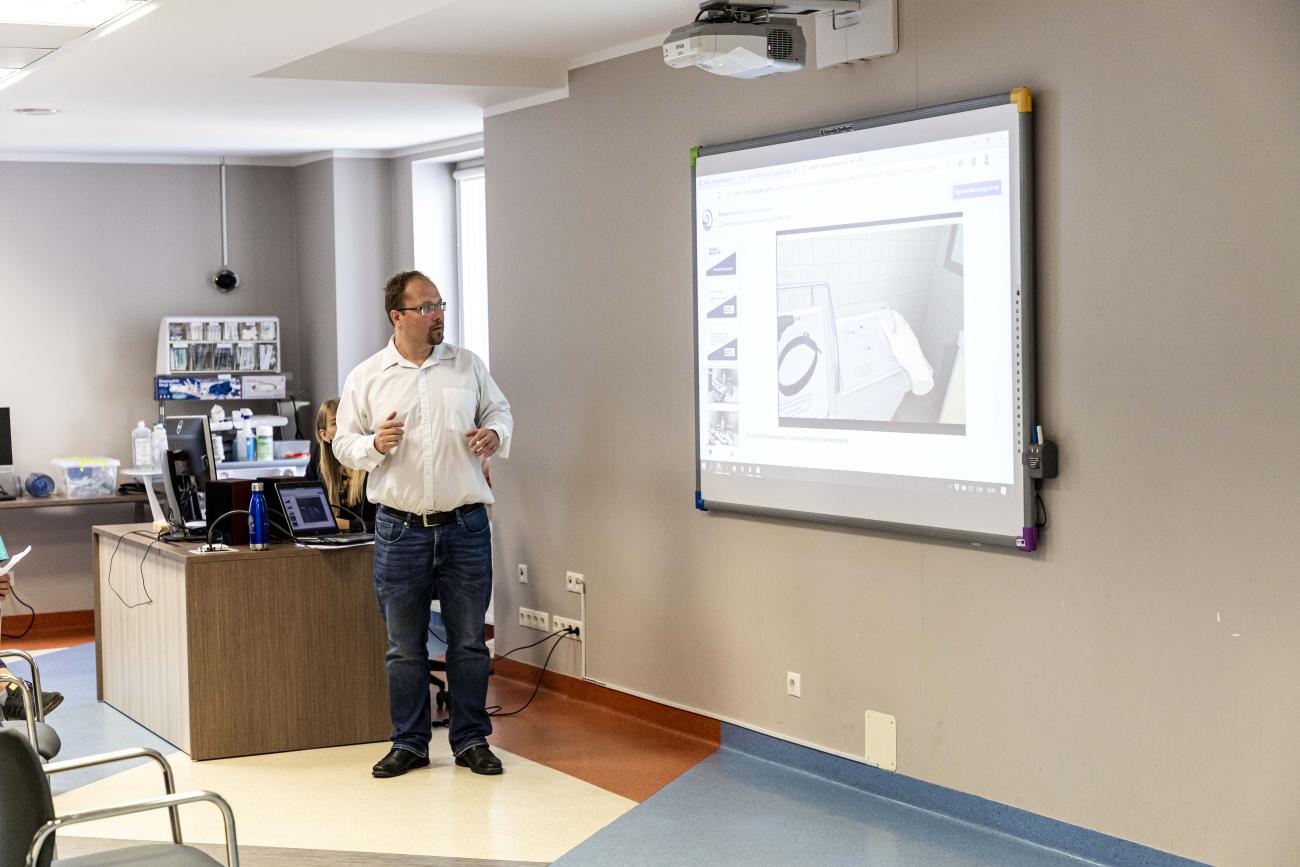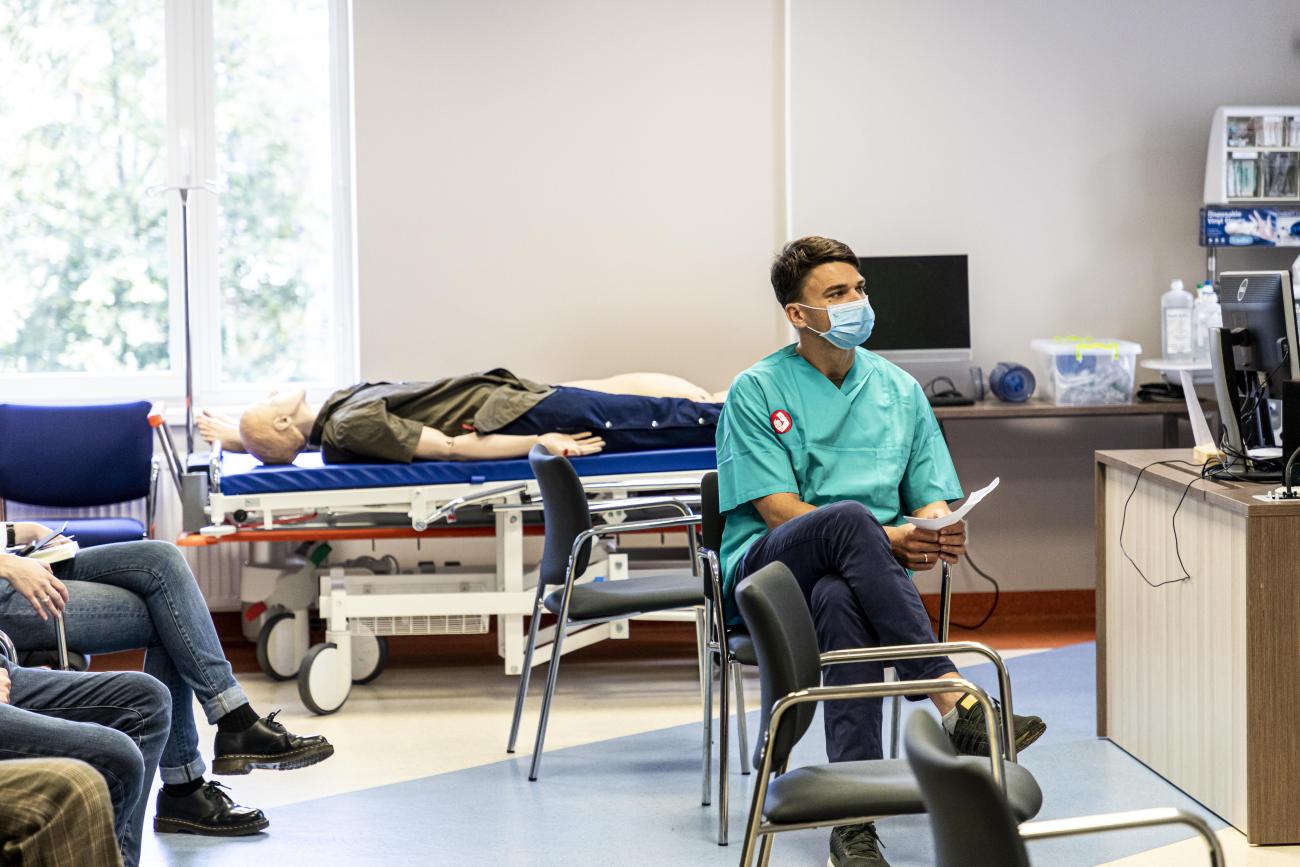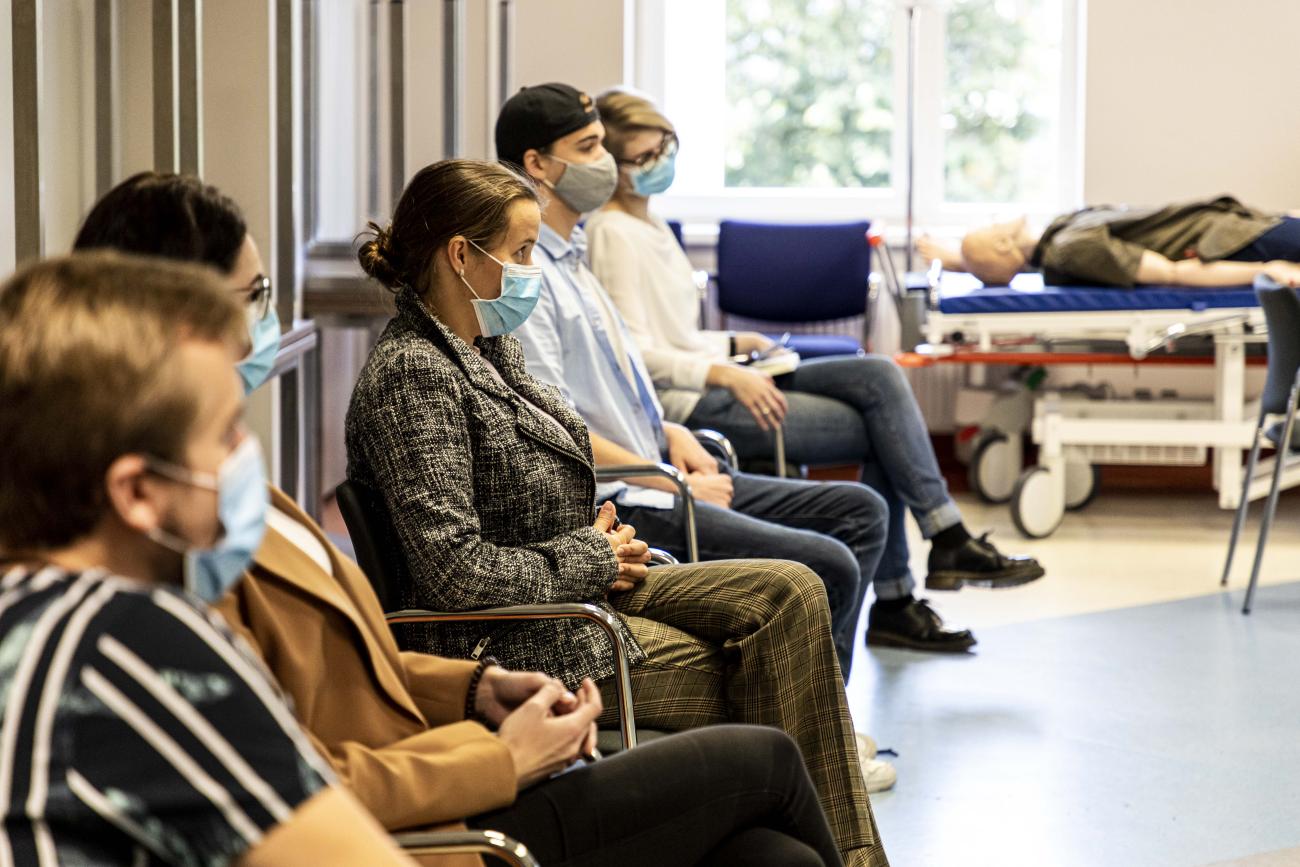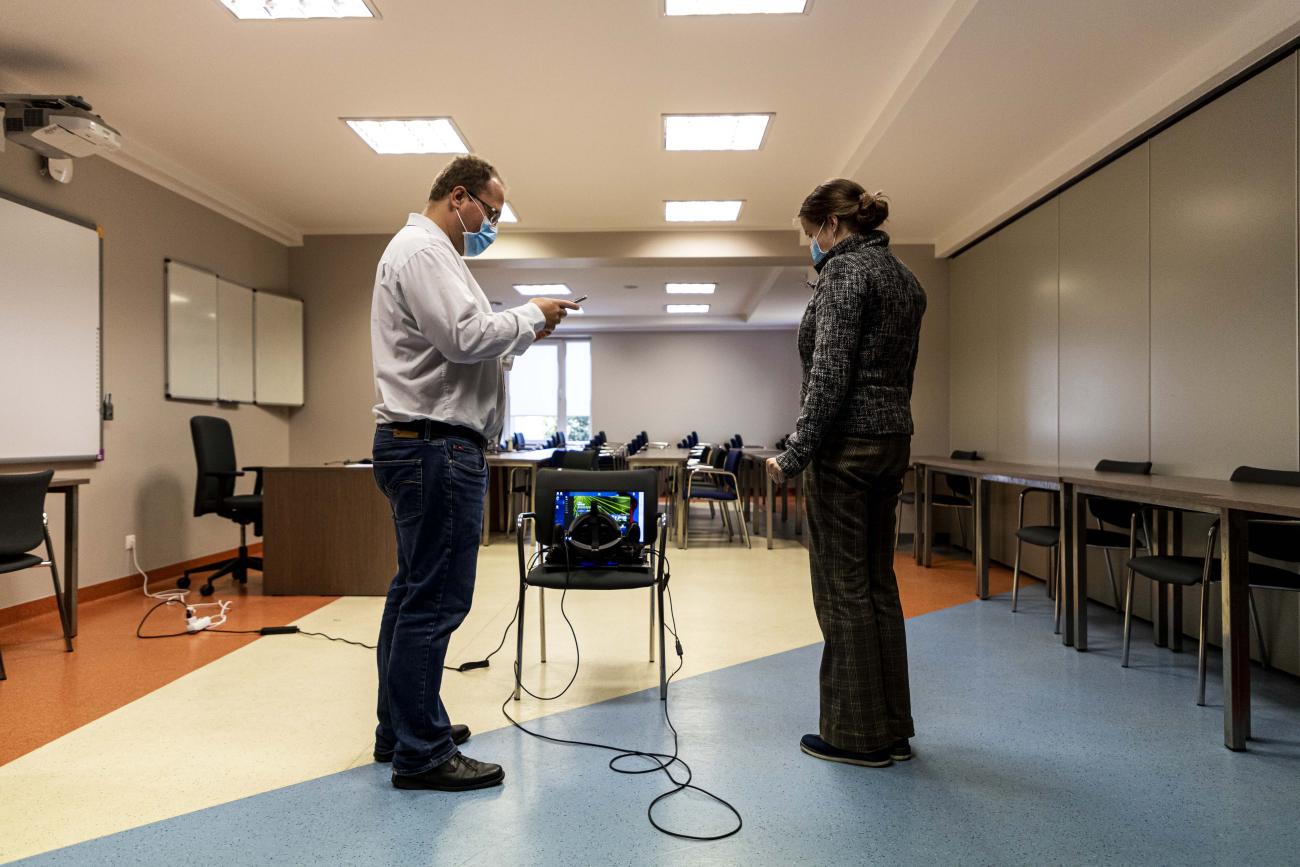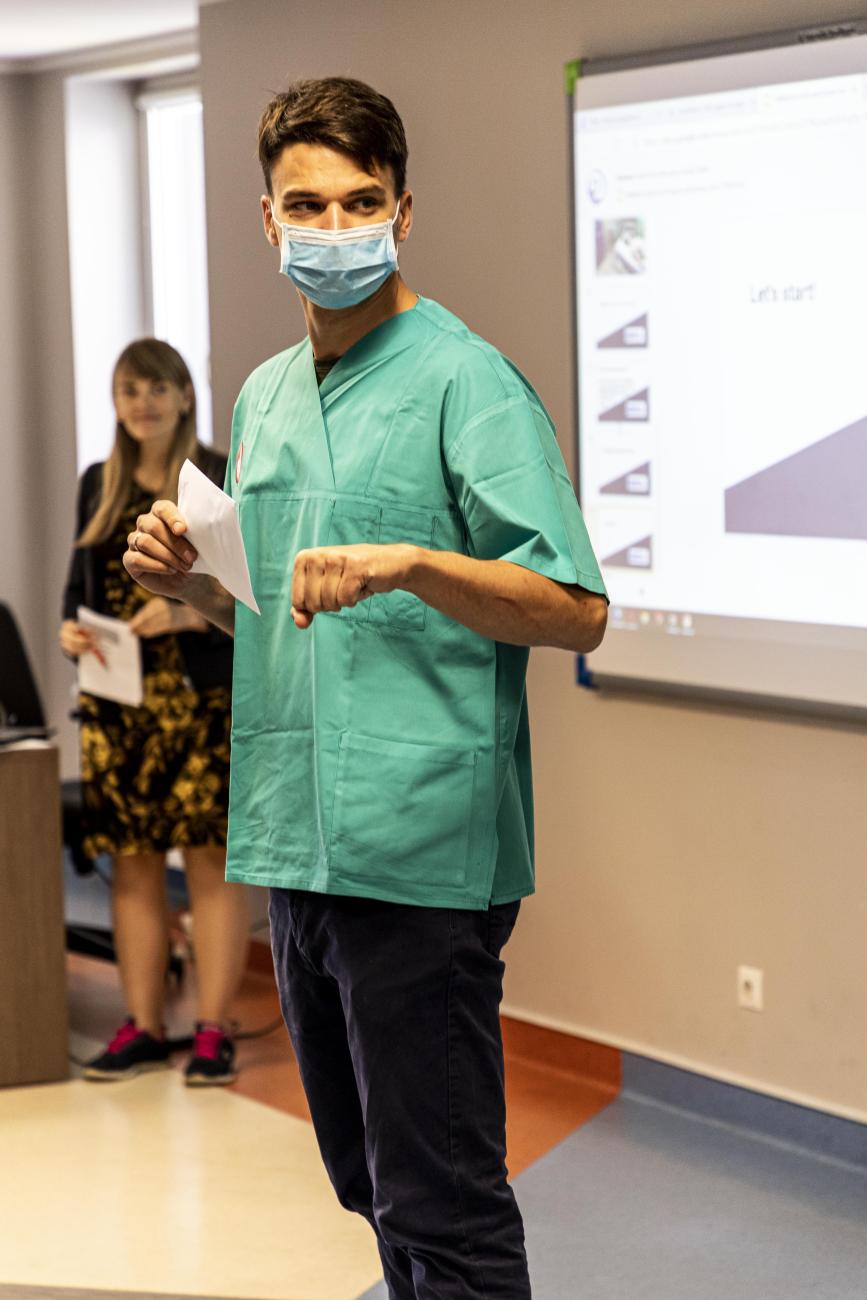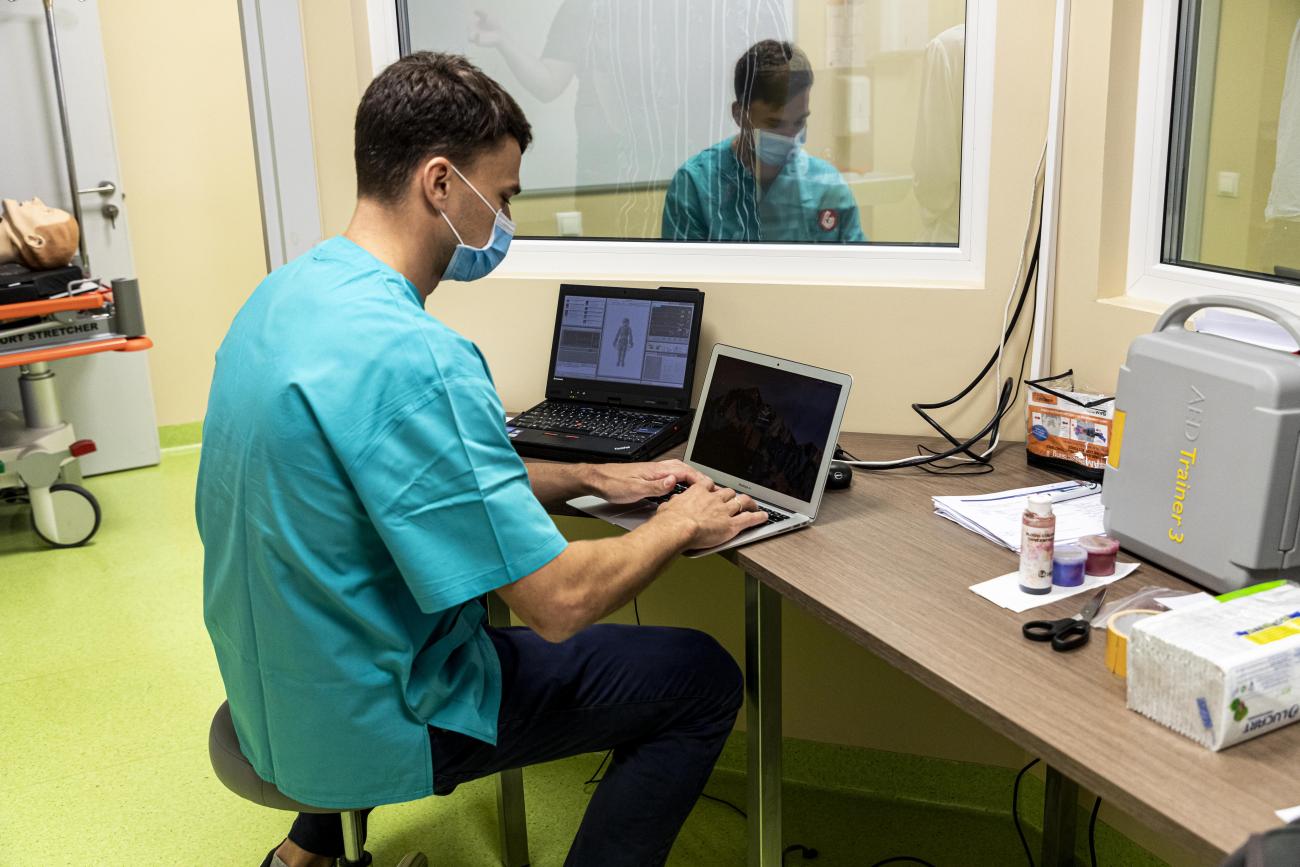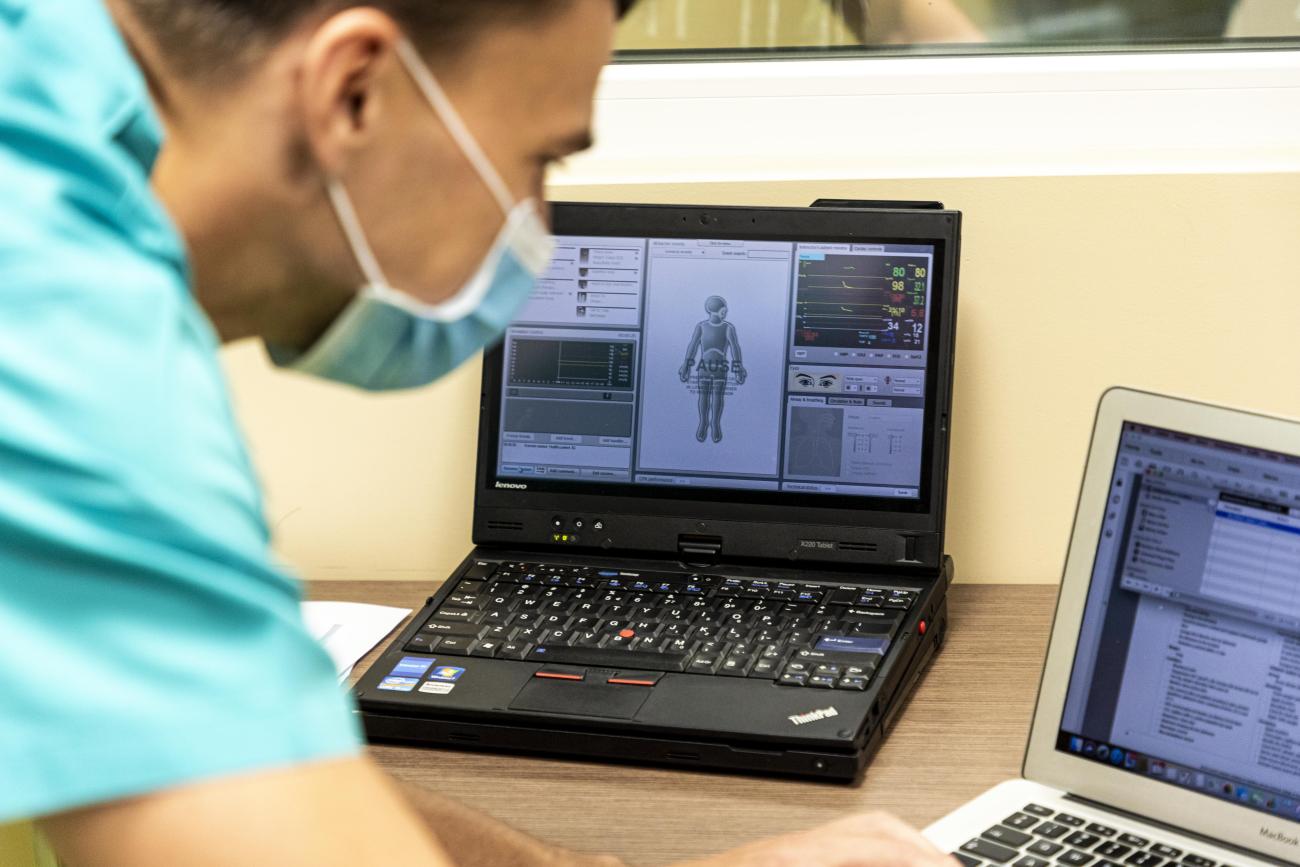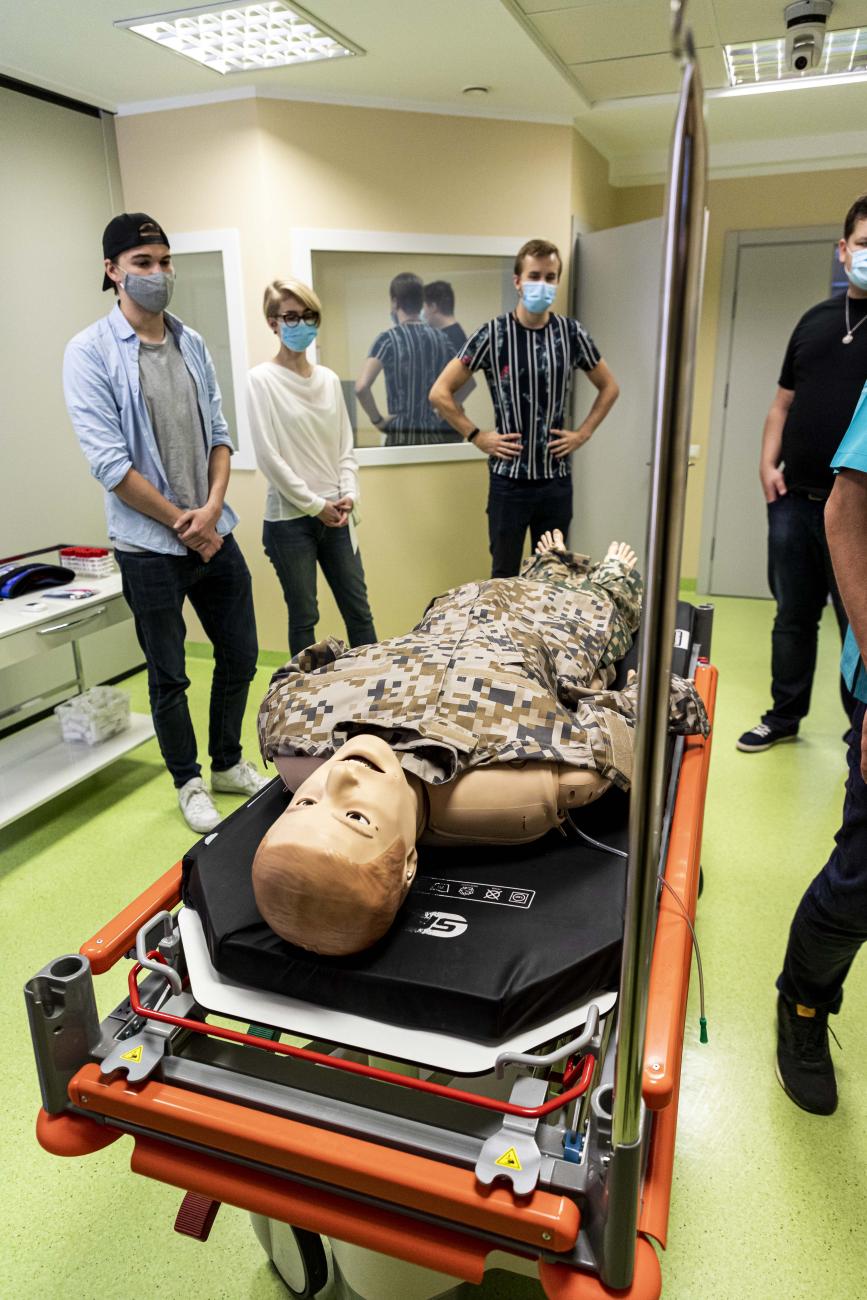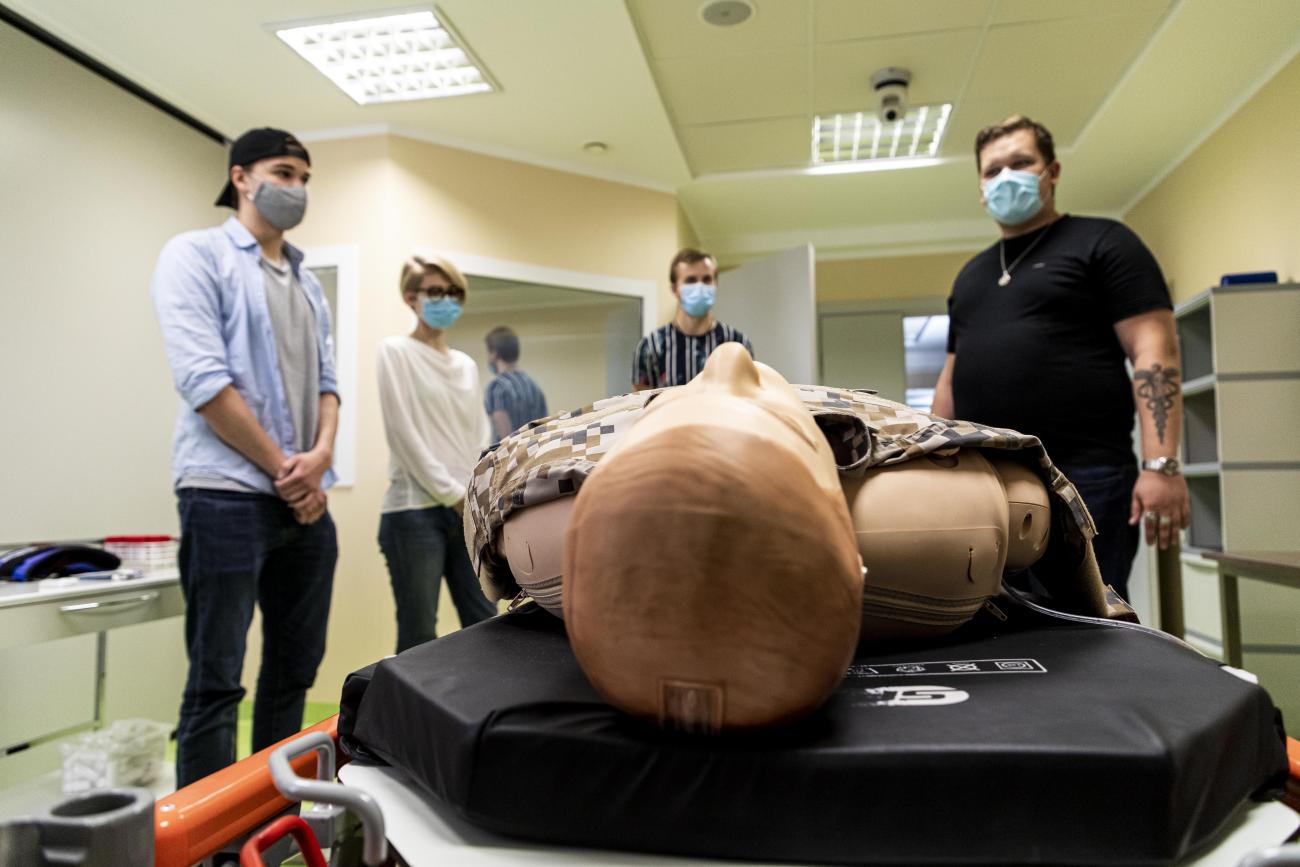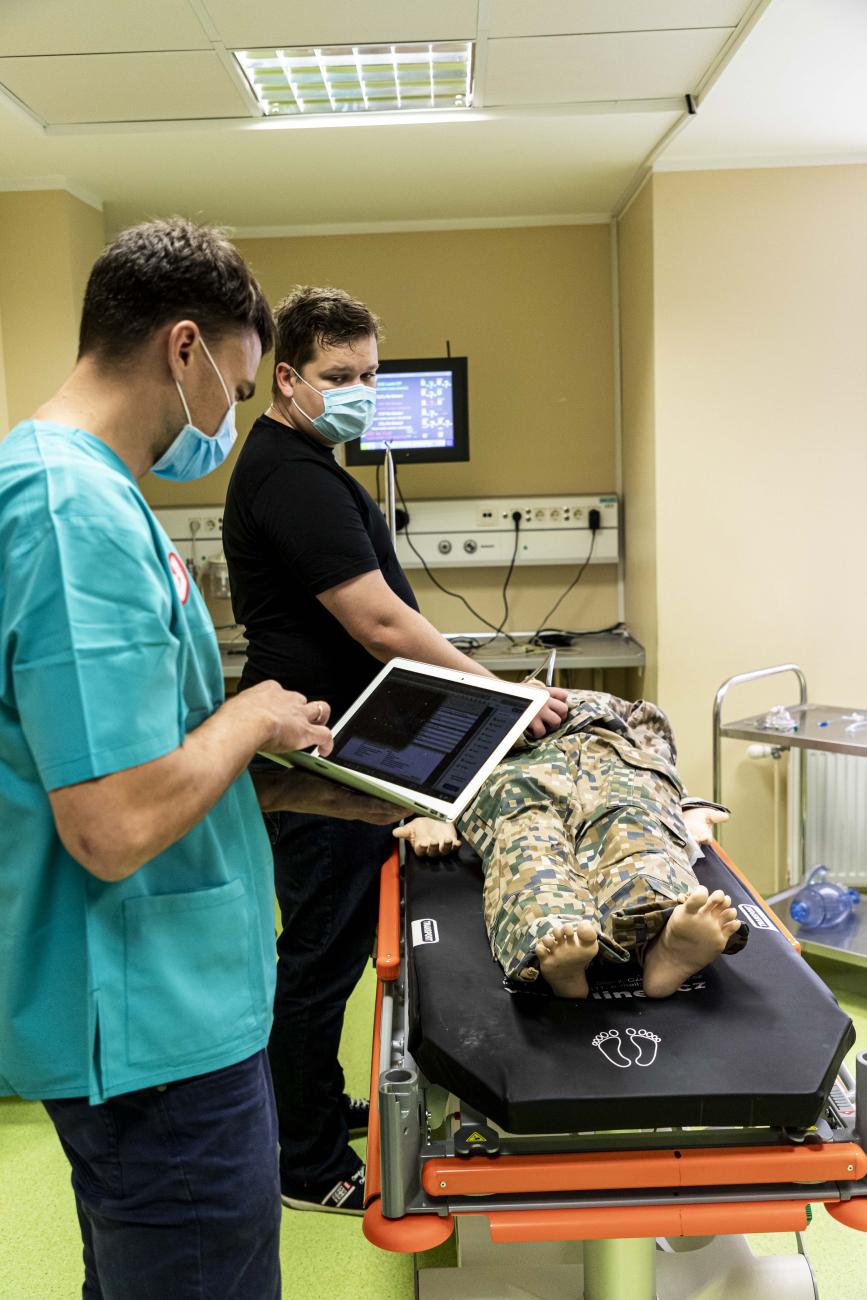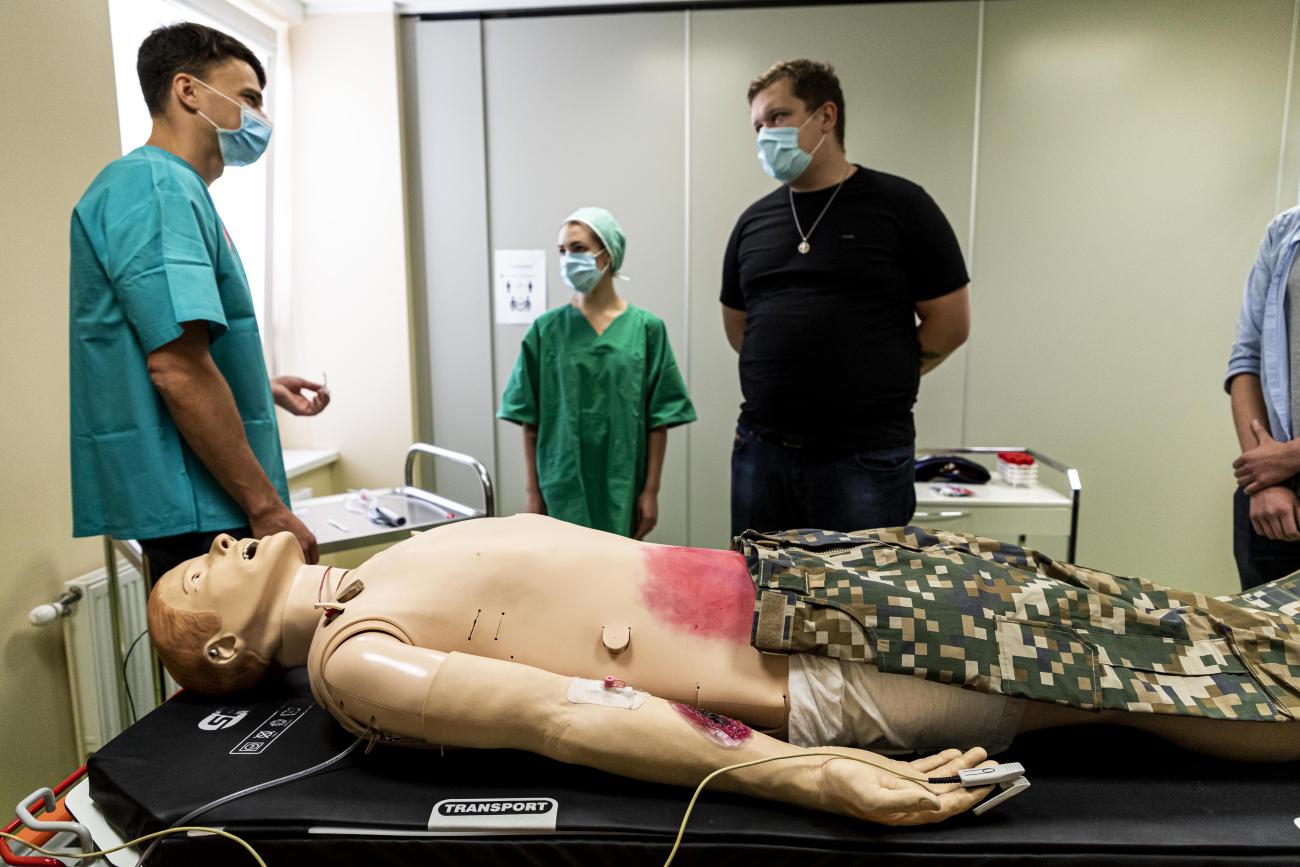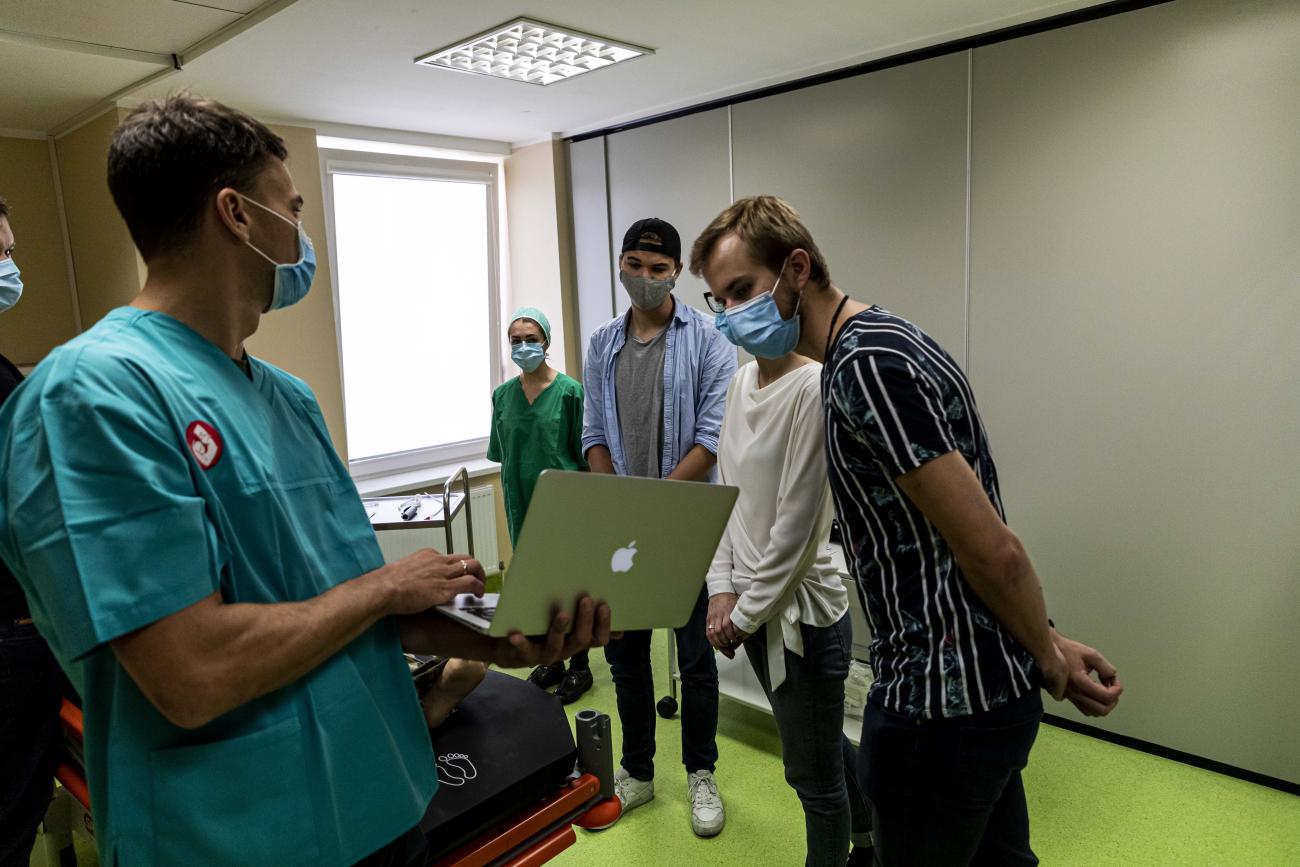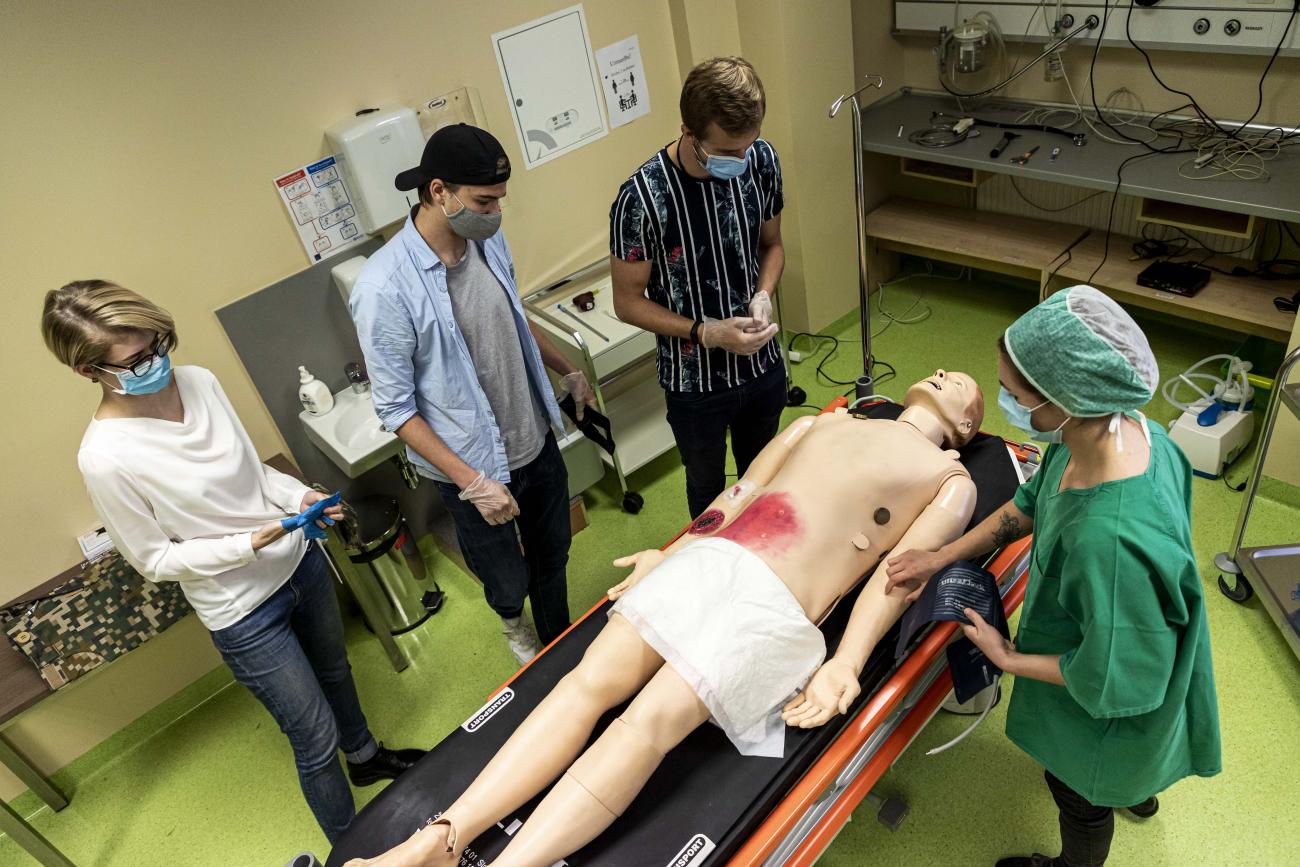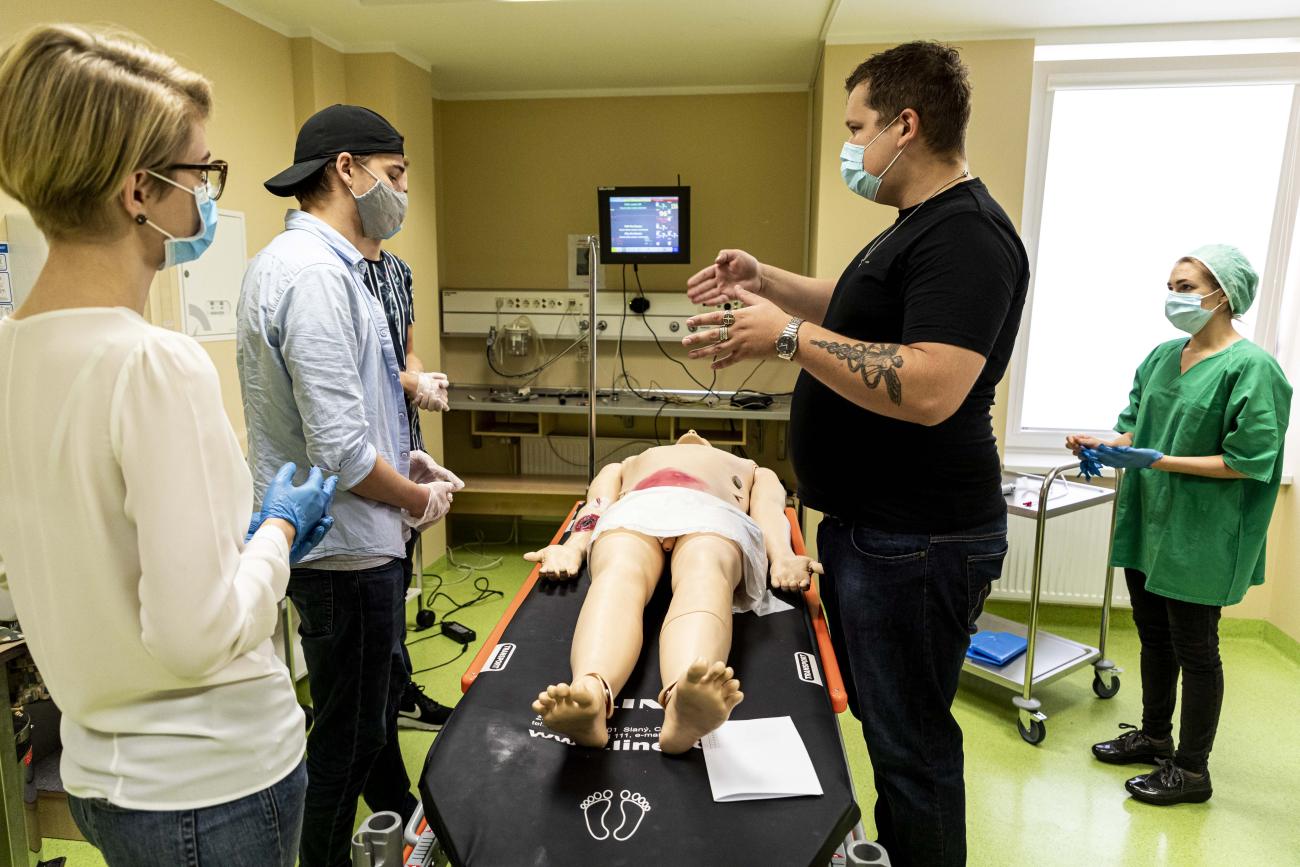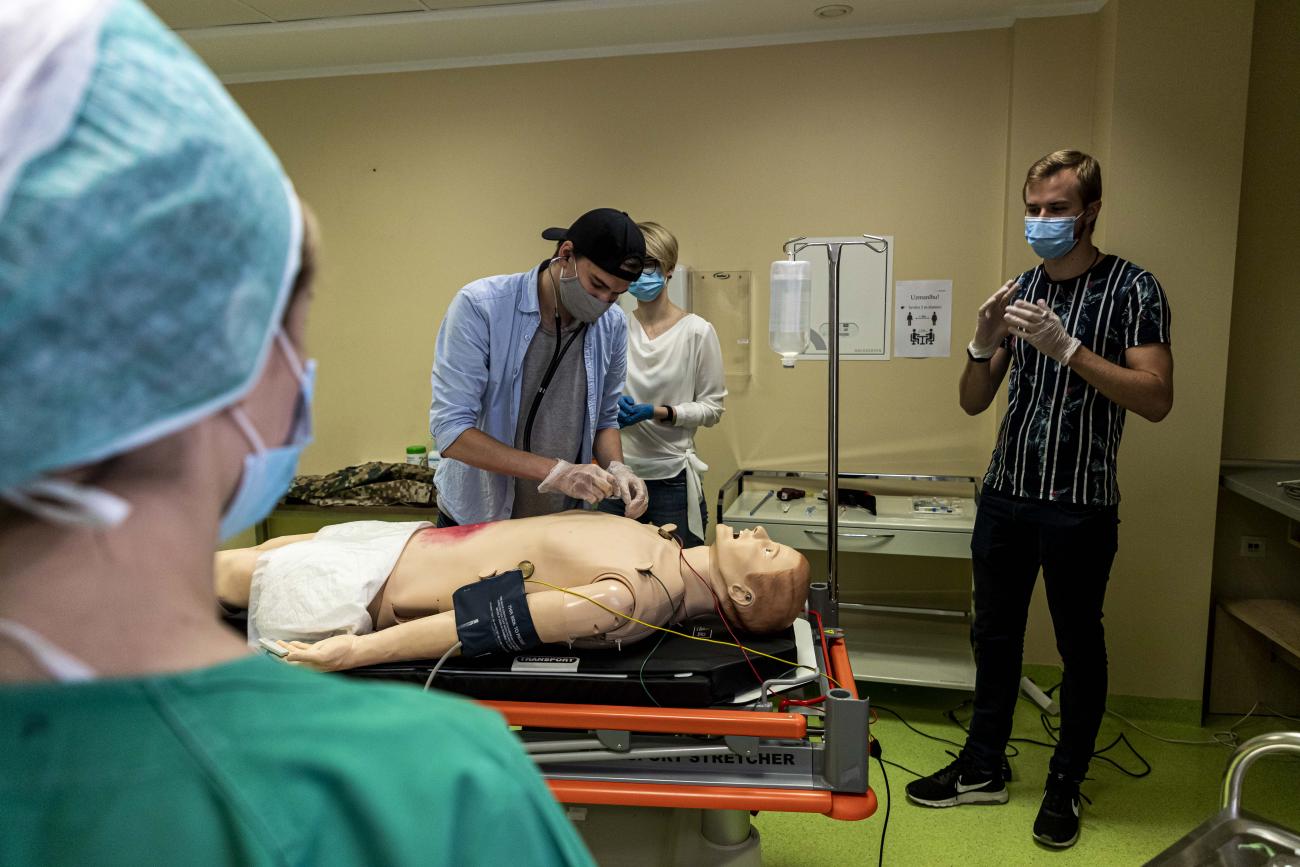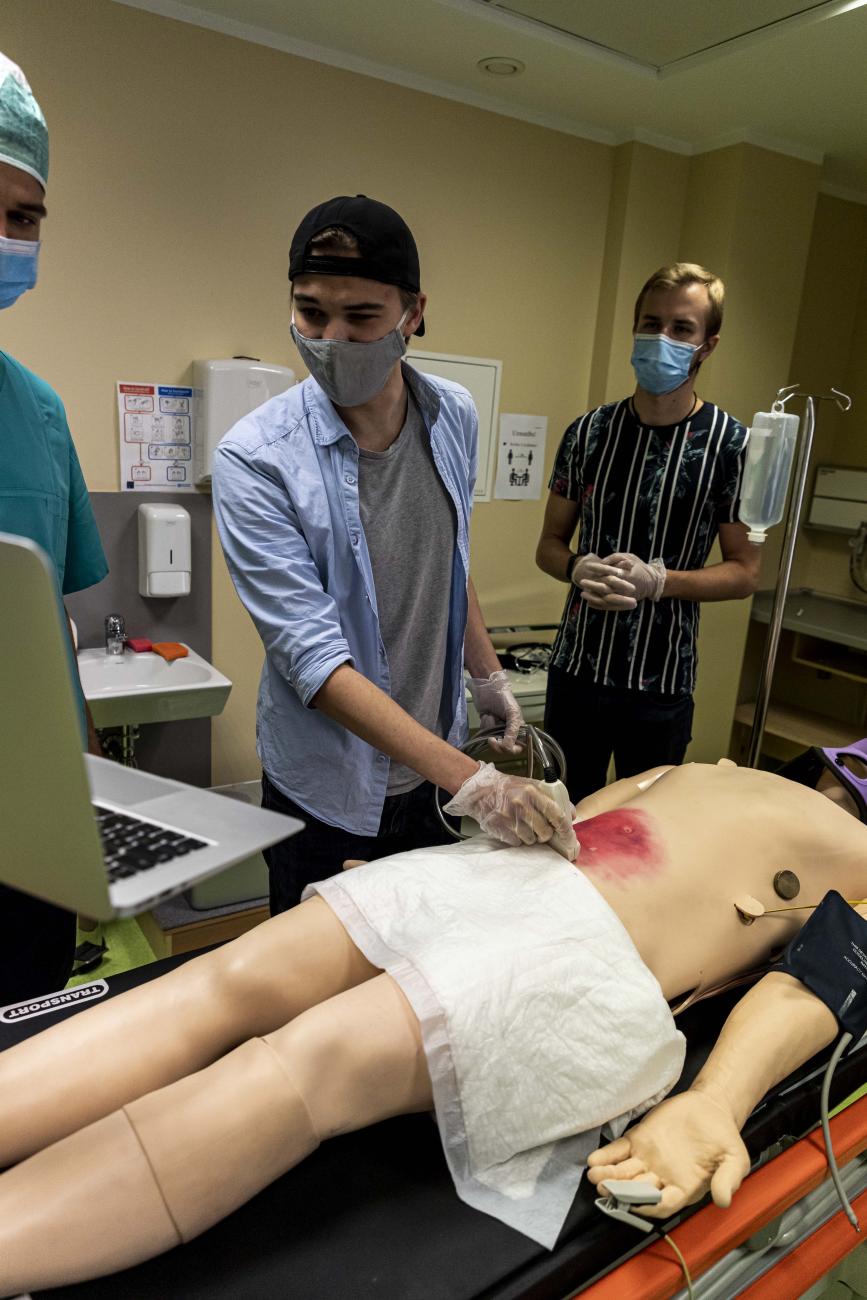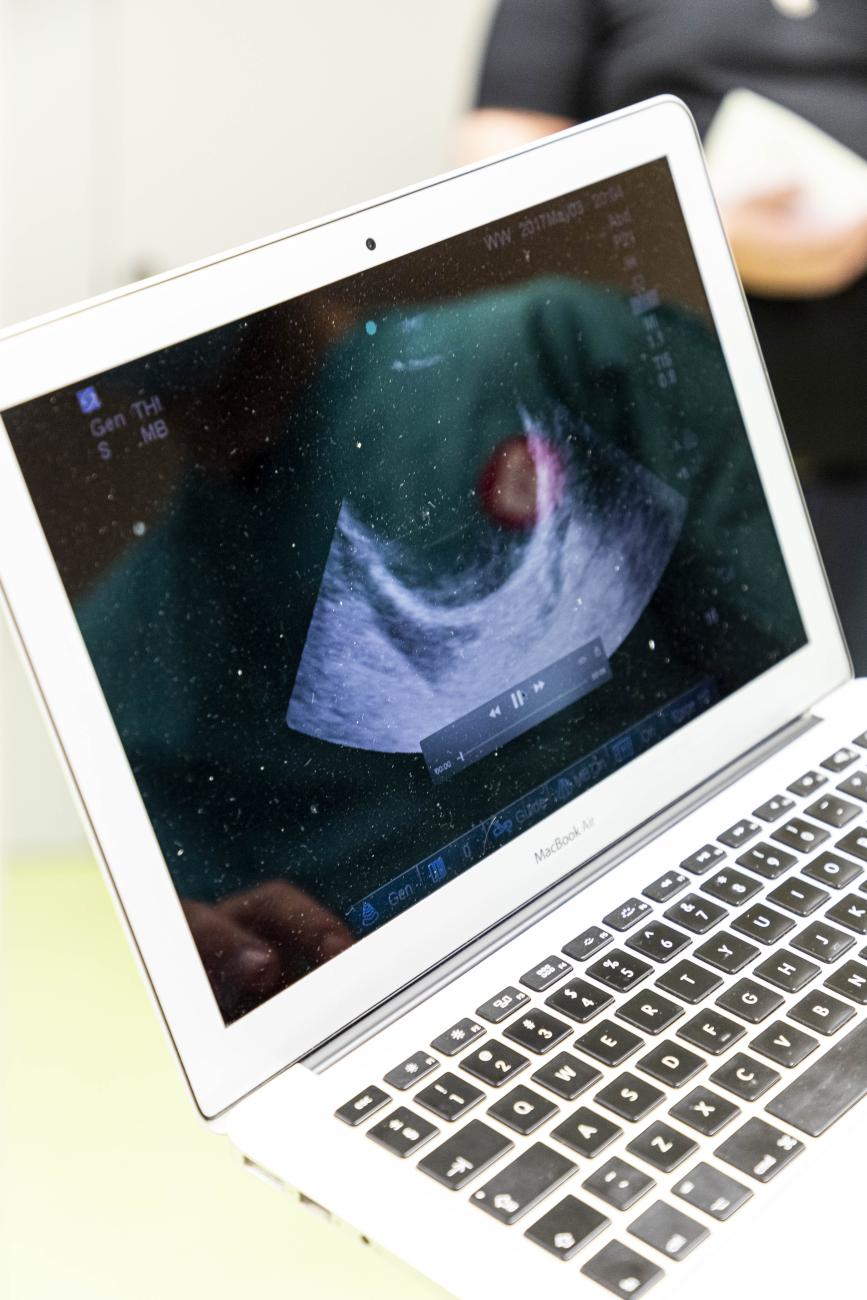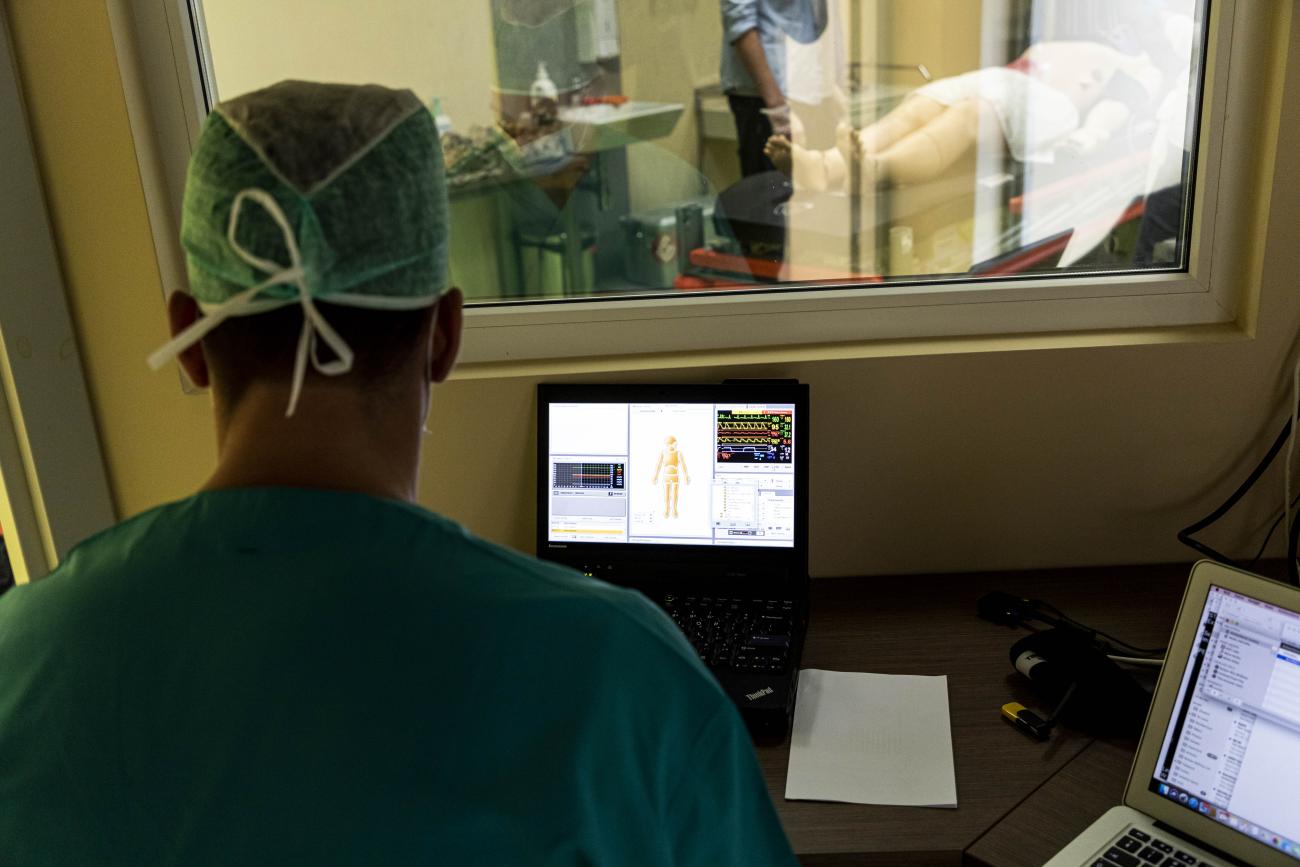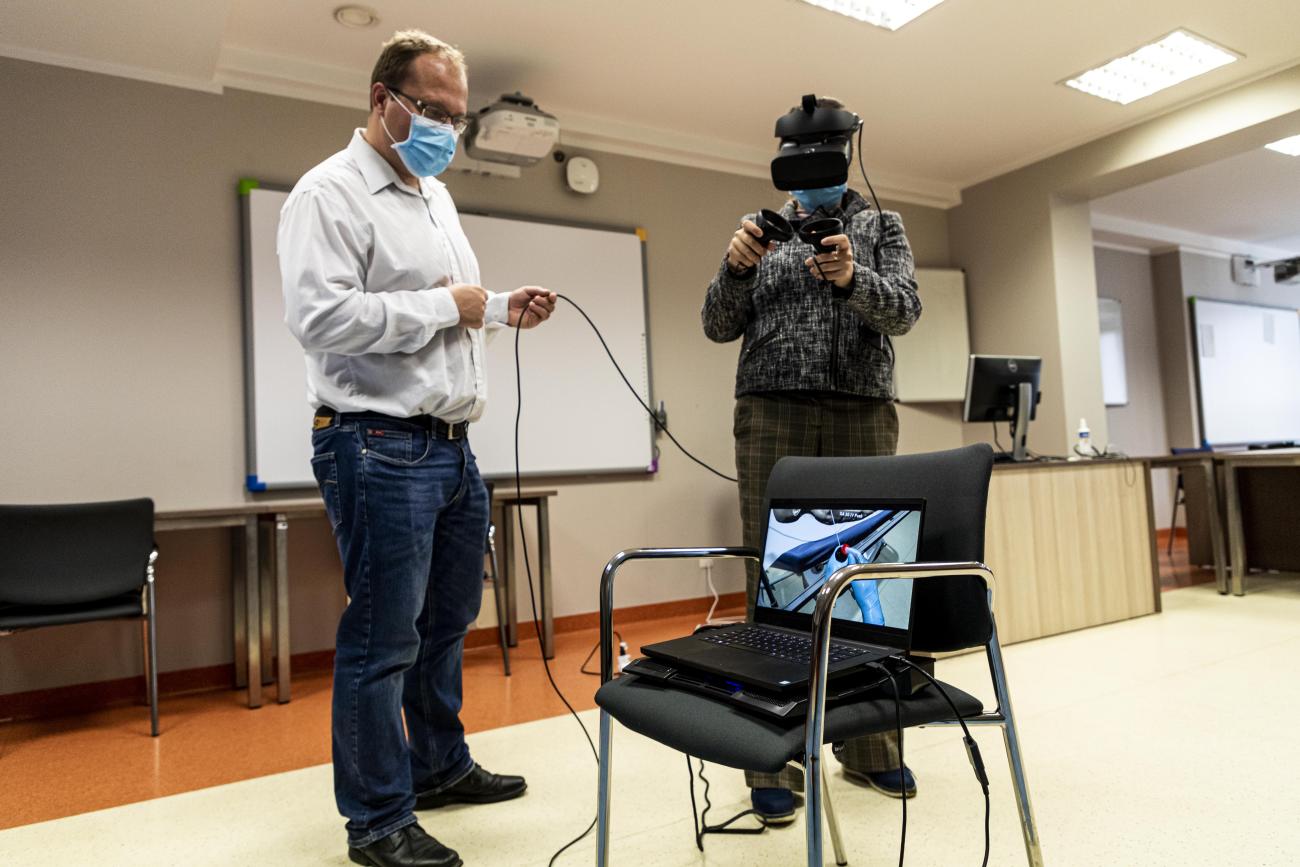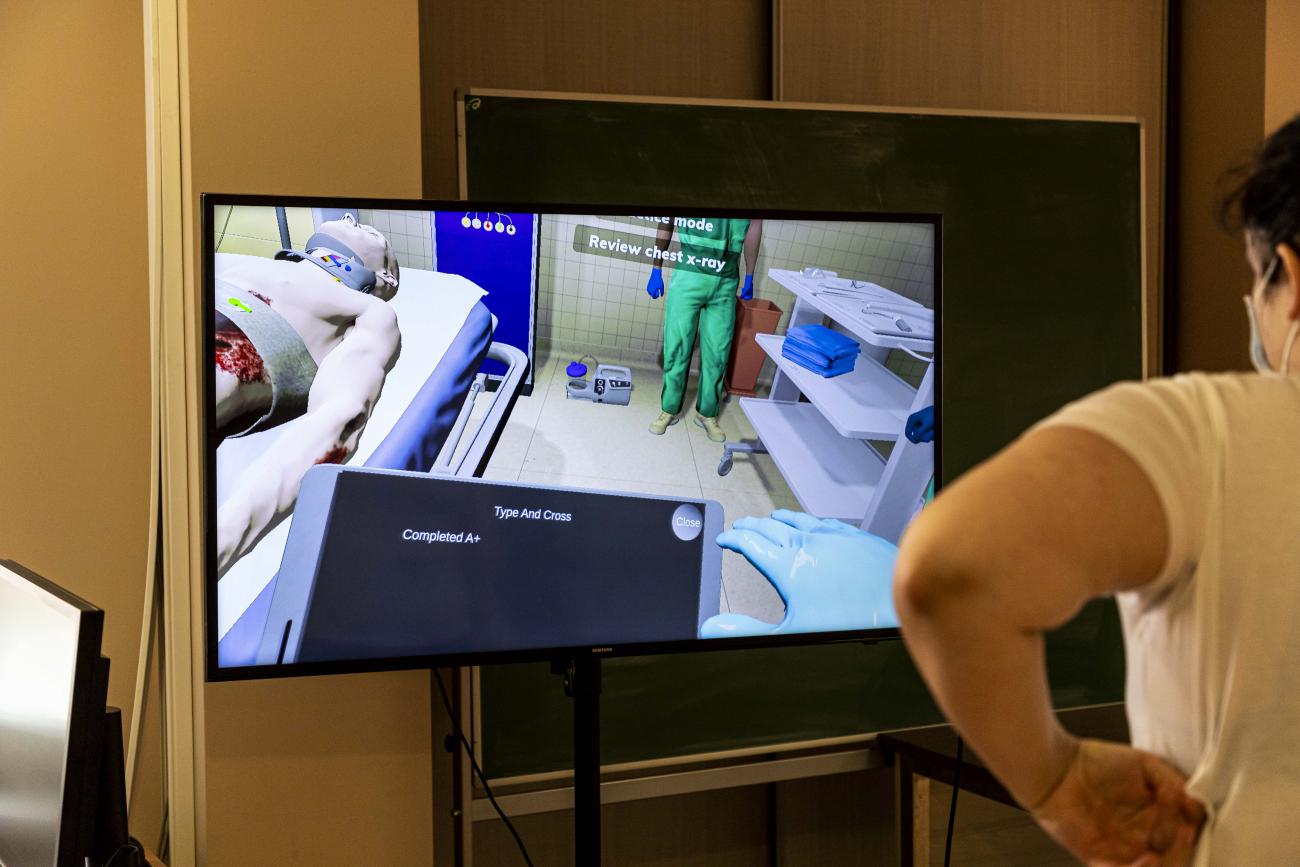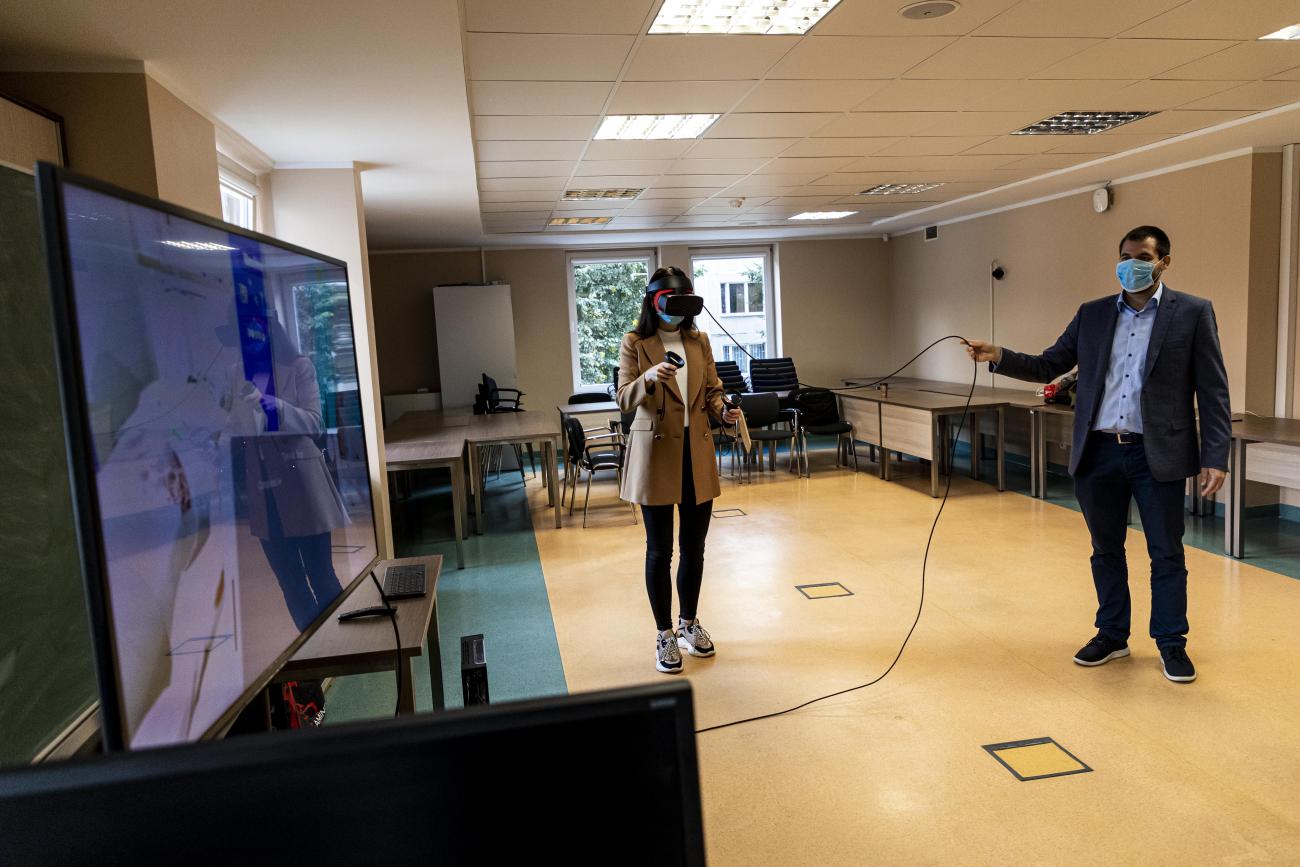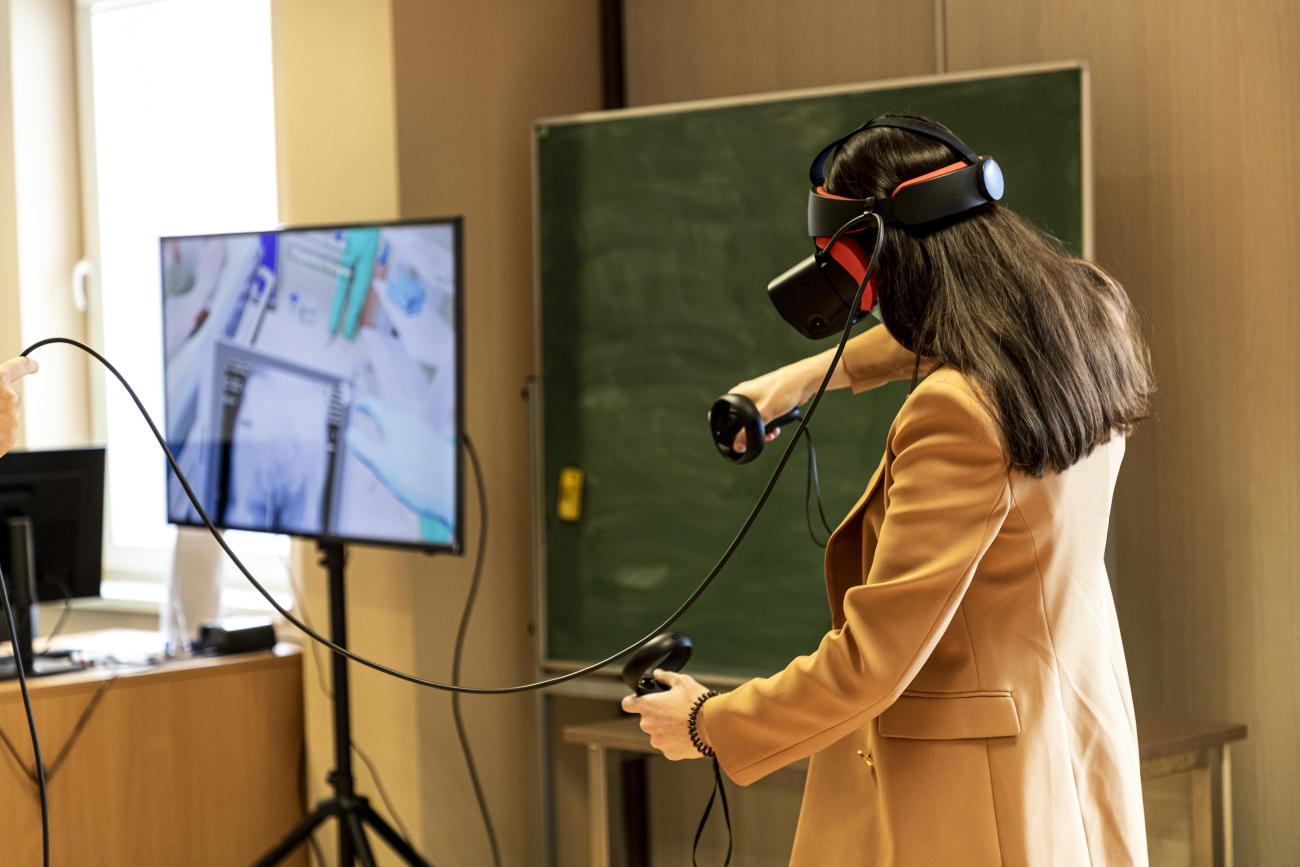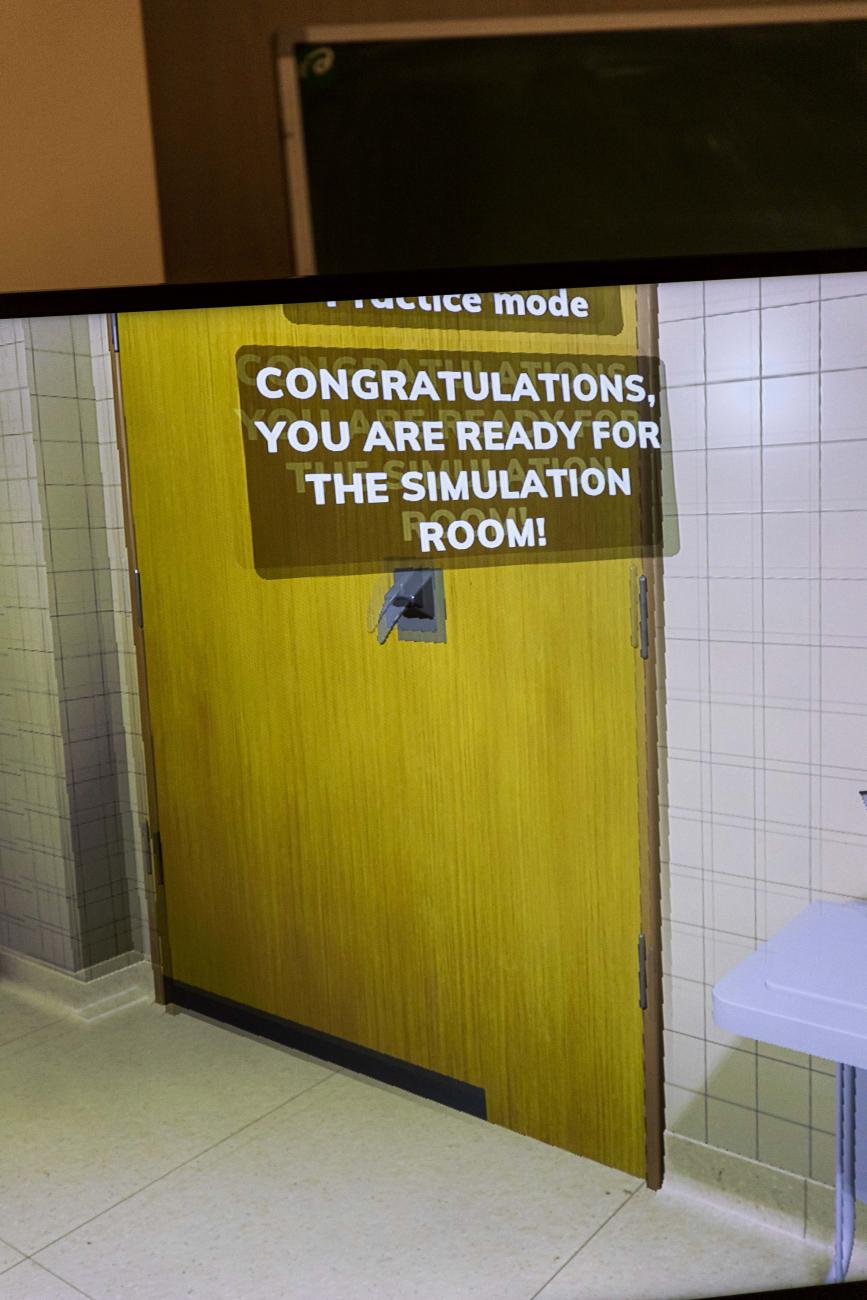Prospective Doctors at Rīga Stradiņš University Get Virtual Reality Training
Prospective doctors, senior students studying medicine at Rīga Stradiņš University (RSU), have undergone training in how best to help injured patients using a 3D virtual reality injury simulator.
The 3D trauma simulator allowed the students to learn algorithms to assess and assist patients with injuries caused by explosions – to perform a primary examination, get their medical history, choose the necessary exams, and then decide on further treatment options.
Students had the opportunity to learn the most effective ways of identifying injuries caused by the trauma and treat them in the correct order – such as to ensure normal breathing, stop bleeding, replace blood products, treat broken bones, etc.
‘Simulation technologies are of paramount importance to health care. They give students the opportunity to put and strengthen the knowledge they have learned into practice. These technologies allow students to train an unlimited number of times and receive immediate feedback on their skills, or mistakes without endangering a patient,’ says Ieva Šlēziņa, Director of the RSU Medical Education Technology Centre (METC). ‘We have added virtual reality and computer simulation activities to the learning process. They allow us to make the study process more interactive in situations where face-to-face contact is limited and remote access to training is required.’
The advantage of simulations is their experimental nature. There is evidence that adults learn better through experimentation, and the virtual reality environment allows future professionals to develop their decision-making skills.
The training took place at the RSU METC in cooperation with the RSU Military Medicine Research and Study Centre and the company Exonicus. The training is based on methodology developed in the United States by the American College of Surgeons (Advanced trauma life support). The training will continue at the end of September.
Related news
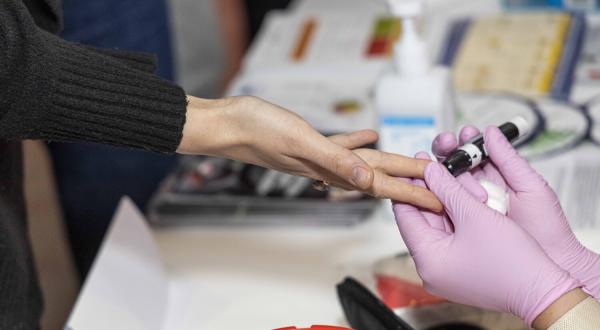 RSU Health Day attracts many first-time donors and large number of student research groupsFor RSU Employees, For Students
RSU Health Day attracts many first-time donors and large number of student research groupsFor RSU Employees, For Students
